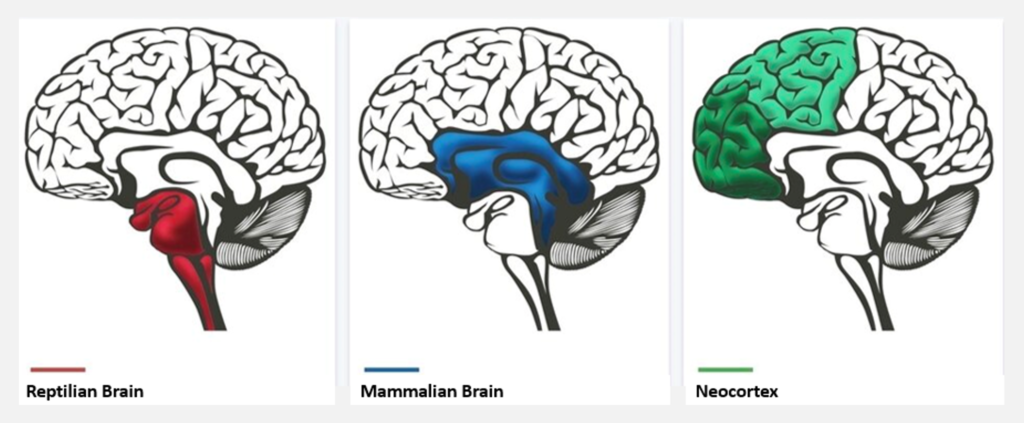Three defenses, three reasons for our suffering
Inspired by “That Little Voice In Your Head“ (Mo Gawdat)

If we look at the survival function of our brain, there are three main sub-systems. Although they have a positive intent of keeping us safe and alive, many times they have exaggerated perceptions that can lead to suffering. See how:



Reptilian Brain
Main Function: Avoids danger. It is mostly responsible for mechanical functions and doesn’t do much thought at all. Default response to most things is fear, triggering to run away from the slightest possibility of a threat.
The Risk: Avoidance thoughts that are not driven by desire but just fear of anything that you don’t want in your life. The reptilian brain will try to scare you constantly making up worst-case unrealistic scenarios.

Mammalian Brain:
Main Function: Avoids pain and seeks reward. Emotions and hormones support mammalian brain functionalities, aiming for survival beyond immediate threats. Reproduction or storing fat are examples or instinct driven behaviors rewarded with pleasure.
The Risk: Our mammalian brain is not really worried about future possible threats, but just about pleasures and pains of the past. It keep us attached to what we are familiar with, regardless of how valuable it is, or how little it contributes to our happiness.

Neocortex:
Main Function: Logic, planning, and self-concept. Is the part that makes us human, responsible for planning and logic. Gives us the ability to solve problems and think analytically. Allows us to stay alive until we are old and weak.
The Risk: It doesn’t really matter if now is OK because our brain will tell us that it can be better, bigger or more. We are never content with the “good enough” because there is more to be attained. Today might be OK but “what about tomorrow?”

Most important take away:
•Our biggest fears very rarely play out. The world is safer than our reptilian brain believes.
•Our mammalian brain feels more comfortable around familiar environments. Dropping our attachments makes us lighter so we can fly.
•Dissatisfaction is part of the design of our logical brain. While it drives progress, perpetual dissatisfaction leads to unhappiness.












